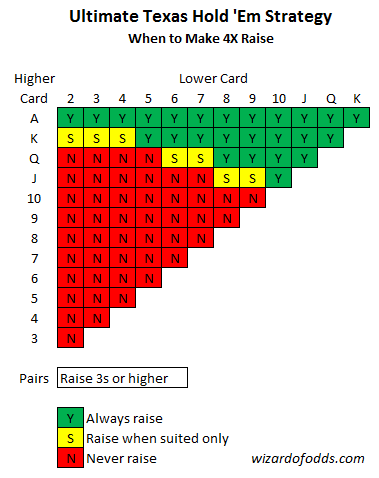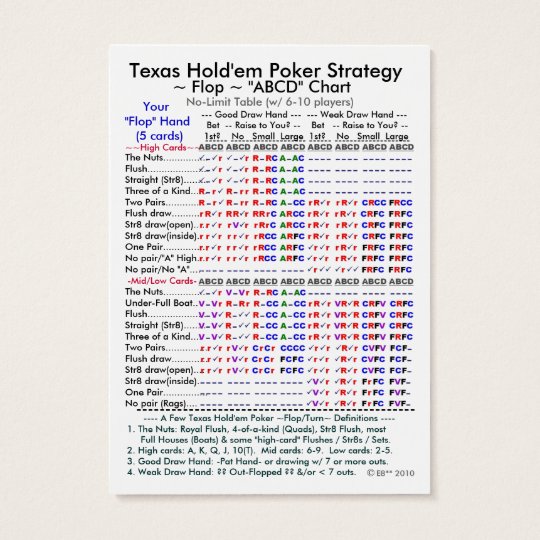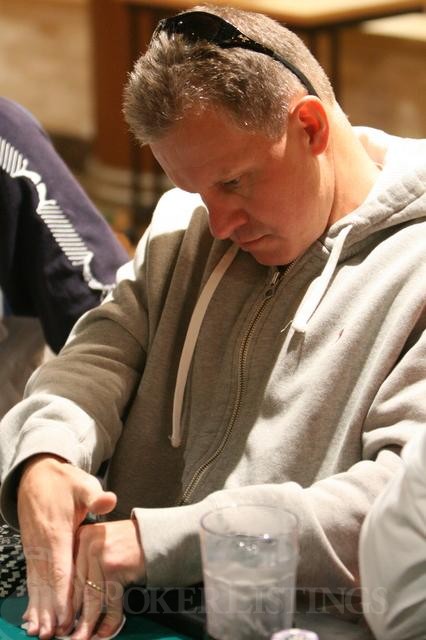Texas Holdem Strategy Guide
Texas Hold’em poker is everywhere these days — on TV, online, and in clubs and casinos. Before you sit down to a game of Texas Hold ’em, make sure you’re in good shape to be successful — take care of non-poker issues and check your physical, mental, and financial status. During the game, you need to understand basic odds and playable hands, as well as how to bluff successfully and follow proper poker etiquette. Texas Hold ‘Em also has its own abbreviations for online play.
Texas Hold'em may take minutes to learn but it takes a lifetime to master. It involves a huge amount of strategy and counterstrategy that will put your math, psychology and deception skills to the. Texas Holdem strategy: Only play good beginning cards, such as the ace and king. Let's now take a closer look at Texas Holdem strategy and the pattern that is essential for beginners to learn. Texas Holdem Strategy Welcome to our fully dedicated Texas Hold’em strategy section! This expansive collection of guides was put together by several highly-successful, past and present, professional poker players. Texas Hold’em is a game of strategy, like any poker game, but where you’re sitting in relation to the action becomes part of your strategy when playing Hold’em. If you bet early, you generally need better cards than you do if you’re one of the blinds.
Playable Texas Hold’em Hands
Texas Hold’em is a game of strategy, like any poker game, but where you’re sitting in relation to the action becomes part of your strategy when playing Hold’em. If you bet early, you generally need better cards than you do if you’re one of the blinds. The following table offers sound advice on what hands are playable when you’re sitting in different positions.
Questions to Ask Yourself before You Play Texas Hold’em
Whether you’re playing Texas Hold’em for fun or money — make that whether you’re playing for high stakes or low stakes — make sure you’re in a position mentally, physically, and financially to enjoy the game and make the most of your chances. Ask yourself these questions before you sit down to a game:

What is the purpose of my playing this session? Whether it’s to learn more, win money, or just hang with friends for a good time, make sure you know why you’re there and that you’re doing everything you can to accomplish that goal.
If I were to play an opponent who’s exactly the same as a well-rested, un-stressed version of me, would that person have an advantage? If the answer is “yes,” hold off on playing until you’re in a better psychological and physical state.
Can my bankroll handle this level of play? If not, play a lower level.
Are there any distractions in my life that I need to get rid of before I play? Pay your rent, walk your dog, call your significant other — whatever it is, get it out of your head so you can focus.
Do I know if the house I’m playing in has any bonuses for players such as bad beat jackpots, high hands, free food and/or drinks for players, or freeroll tournaments? If not, ask a floorperson before you start playing and find out about the details of how you can qualify.
Is there an aggressive person at the table I’ll be playing at? If so, try to get yourself seated to his left so you see the raises before your action and not after.
What do I know about the people sitting at the table? Whatever it is, use it to your advantage.

Rough Odds for Texas Hold’em
Texas Holdem Poker Odds Chart
Playing poker is about playing the odds. The following list gives the odds for outcomes in Texas Hold’em hands. When you realize how heavily the odds are stacked against you, you may want to rethink going all-in before the flop with two suited cards. Use the odds to your advantage:
1 percent (1-in-100): Percentage of time that no player holds an Ace or a King at a table in a 10-handed game
1 percent (1-in-100): Percentage of time that if you hold two suited cards, you’ll flop a flush
6 percent (about 1-in-20): Percentage of time that five community cards will give pocket suited cards a flush
6 percent (about 1-in-20): Percentage of time that you’ll be dealt a pocket pair
8 percent (about 1-in-12): Percentage of time that you’ll hit at least trips after having a pair on the flop
12 percent (about 1-in-8): Percentage of time that you’ll flop trips if holding a pocket pair
12 percent (about 1-in-8): Percentage of time that two more cards will flop in the same suit as a suited pocket pair
19 percent (about 1-in-5): Percentage of time that the five community cards will at least trip your pocket pair
32 percent (about 1-in-3): Percentage of time that you’ll pair one of your cards on the flop (with no pocket pair)
33 percent (about 1-in-3): Percentage of time that you’ll make a full house or better after having trips on the flop
35 percent (about 1-in-3): Percentage of time that you’ll make a flush on the turn or river if you have four cards to a flush after the flop
Texas Hold’em Bluffing Tips
What makes any poker game exciting, and Texas Hold’em is certainly no exception, is that players can bluff at any point. Sometimes half the fun of a game is seeing whether you can successfully bluff an opponent out of some money. But, even as you’re misleading your opponents, make sure you bluff in the right circumstances. Heed these bluffing tips:
Only bluff where it makes a difference to your standing — either in a tournament or to your stack of chips.
Be careful bluffing someone considerably worse than you are. He may call just to see what you have, or on some probabilistically low draw when he already has you beaten anyway.
Bluff in situations where the board hints at the great hand you do not have: straights and flushes being hinted at by the board, the turn of an Ace, and so on.
Don’t try to bluff players who only play the most solid of hands if they’re still in the pot.
Don’t bluff people who are extremely likely to call.
Do bluff the timid or people who are likely to fold.
Remember that it’s easier to bluff in No-Limit than Limit because the bets (both implied and real) are bigger.
Poker Etiquette for Texas Hold’em
Texas Hold'em Poker Strategy Guide
The etiquette tips in the following list apply to Texas Hold’em and to any other poker game. Sure, you can have fun while you play poker, but you can have all the fun you want without being impolite to the other players or the dealer. Basic poker etiquette includes these tips:
Always play in turn.
Be aware of when it’s your turn to post the blinds and do so promptly.
Any time there is a discrepancy at the table, talk to the dealer — not the other players — about it. If you’re not able to get satisfaction from the dealer, ask for a floorperson. Talking with other players about the problem you perceive may generate ill will among people who have no authority in the situation in the first place.
Place your bets in front of you. Do not splash them into the pot.
Do not show your hand to other players at the table while a hand is in progress.
Tell the dealer when you intend to raise. In No-Limit, gather the amount that you’re going to raise and either announce the total, or move it all forward with one motion. This prevents being called on a “string raise.”
Don’t forget to tip your dealer. Dealers work for minimum wage and rely on tips for their livelihood.
Online Poker Abbreviations for Texas Hold’em
Playing online poker in general, and Texas Hold’em in particular, is a very popular pastime. When you’re online, you may encounter abbreviations specific to the world of poker. To understand what other players are saying, get familiar with these online abbreviations:
| Abbreviation | What It Means | Abbreviation | What It Means |
|---|---|---|---|
| 86 | To remove or ban | ne1 | Anyone |
| brb | Be right back | nh | Nice hand |
| gc/nc | Slightly sarcastic phrase meaning good catch/nice catch | gg | Good game |
| lol | Laughing out loud | gl | Good luck |
| nl | No-Limit | ty | Thank you |
| n1 | Nice one | 🙂 | Smiley face (view sideways) |

A Texas Holdem strategy guide is something that can be both good and bad, it will work sometimes and others, it just won’t. This is because online Texas Holdem Poker can differ from game to game, opponent to opponent and the simple fact is, there are just too many variables to consider when playing. This makes pre-planning a strategy a difficult task at best. The only sure fire strategy that you can always count on is to play the player, not the hand
Texas Holdem Strategy – Learn the game

The first and MOST IMPORTANT Texas Holdem strategy is to know how to play the game. You will need to have knowledge of the hands, the rules (including the various Texas Holdem terms) and how to play the game. Without this, all strategies and techniques will be completely useless. If you want to learn how to play the game, visit our How To Page for a comprehensive Texas Holdem guide
Playing the player
Playing the player is probably the simplest Texas Holdem Strategy out there. It might take a little bit of practice to perfect, but when you do, it will be one of the most effective ways to win. As simple as it sounds, it will take a little bit of work and you shouldn’t expect to sit down at a table and immediately know what is going on. You will need to spend a few moments observing your opponents, looking for certain characteristics such as movement, twitches and in the online Texas Holdem, studying their betting methods.
In land based poker, you will be able to get a first-hand look at the people or person you are playing against, but online Texas Holdem poker is a little difficult because all you will see is an avatar or a preset image. To read the player in online poker, you will need to pay close attention to how they bet, when they fold and when they raise. If for example, a player goes all in without seeing the river cards, chances are he’s trying to bluff or if he keeps on raising big, he will most likely be trying to buy his way out of the bluff by scaring off competitors.
Card Counting
In many cases, card counting does not work and is severely frowned upon by the casinos but in the case of Texas Holdem, it is a necessary evil. It does not work the same as it would in Blackjack, but it will help you to guess the possibility of a player having a certain set of cards. For example, your hold cards are an ace and a jack and the river contains another ace as well as a jack. The chances of a player having the other two aces as well as the other two jacks are extremely slim so it would be safe to assume that you have a fairly decent hand and you would be able to bet. You will of course need to do some research into the various odds (similar to that of our blackjack graph found on our blackjack strategy page) but once you have it, you will be able to memorise it and carry on with your game. If you are a mathematical genius on the other hand or a mentalist, then both the card counting and reading the player will be extremely simple.
Betting
Ultimate Texas Holdem Strategy Guide

Before you play Online Texas Holdem Poker, set out a budget, one that will only permit you to play with and lose what you can afford. This will allow you to plan your bets accordingly and will prevent you from going all in on a pair of two’s. Careful betting will also allow you to carefully coax a player into betting more than they should. This is a particularly effective tools if you know that your hand is unbeatable and you want to milk the opposition for all they are worth. Instead of going all in on the first turn, you will be able to slowly increase the bets which will prevent the opposition from scaring and will allow you to win a much bigger pot.
Start slow and know the game
Even though a decent Texas Holdem Strategy Guide will go a long way in helping you to play a more effective game but in the end you will need to devote a lot of time to fine tuning your skills. The most effective way to do this is to learn the art playing online Texas Holdem Poker and then refine it playing with friends of family before taking your knowledge, skills and Texas Holdem Strategy into a high stakes poker game.